Palin’s fast-paced tour of Nigeria highlights the contrasts and contradictions of the ‘giant of Africa’. But in one of the most dangerous countries in the world to be a Christian, it deserves a deeper look, says Emma Worrall
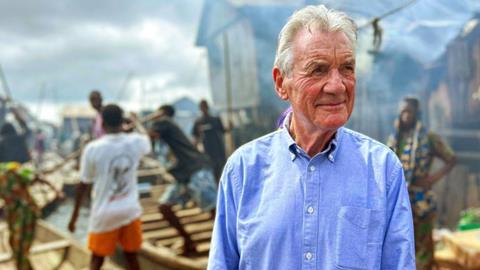
Michael Palin is something of a British institution. I grew up watching his travel programmes Pole to Pole and Around the World in 80 Days, in which his quick wit, curiosity and genuine interest in the people and places he visits have always stood out.
More recently, I was gripped by his trips to North Korea and Iraq. They aren’t exactly high on the tourist trail, but as someone who works for Open Doors, these are two countries I’m very interested in. Both are among the riskiest places in the world to be a Christian.
Nigeria is a remarkable country, but it is also at serious risk
Palin’s latest journey was a 1,300-mile odyssey to the “giant of Africa”. Nigeria is the third most populous country in the world, where an astonishing 60 per cent of the population will soon be under 25 years old.
I visited Nigeria a couple of years ago with Open Doors. I met twelve remarkable women who had all experienced violent persecution because of their Christian faith and, honestly, I feel like I left a little bit of my heart with them. The women had all been raped, widowed or kidnapped by extremist groups. And yet they possessed so much joy and life, you could see it in their uplifting worship – seeing faith refined through suffering was a real spiritual detox for me.
With this trip in my memory, I was very keen to explore Nigeria once more with Palin as my guide.
A country of contrasts
Michale Palin in Nigeria presents the viewer with several contrasts, contradictions and extremes, many of which I vividly remember from my time there. The capital, Lagos, is a city of perpetual noise – beeping horns and the incessant movement of people, both rich and poor (70 per cent of people in Lagos live in slums and Palin visits Africa’s largest slum in the first episode). Massive megachurch buildings rise from the earth, the faces of pastors in suits plastered on billboards.
But when I boarded the plane for Jos in Plateau State - the gateway to the north - a very different Nigeria emerged. I was hoping that Palin would highlight this contrast - and particularly the difference between the north and south in terms of faith and religious freedom - but it was only lightly touched on.
It’s an issue that deserves a lot more attention.
Dangerous faith
Nigeria is ranked sixth on the Open Doors World Watch List, which rates the most dangerous places in the world to be a Christian. If this list was purely ranked on the basis of violence, Nigeria would be top. Last year over 5,000 Christians died for their faith – more than in the rest of the world put together. And what is happening in Nigeria is now spilling into the wider region; it really is a giant of a country and its impact on the continent is huge - for good and bad.
The journey is an uncomfortable watch at times, and that’s a good thing. I felt moved as Palin stood at the edge of the Atlantic Ocean, where countless men and women were transported in slave ships to the New World, leaving their land and loved ones forever. It’s a reminder of the horrors of humanity, and yet it also made me think of the horrors happening right now and that rarely hit the headlines – the horrendous number of abductions and killings perpetrated by the terror group Boko Haram and other extremists.
This hotbed of violence is where Palin heads to next – he flies to the north, to a landscape dominated by Islamic Sharia law and Boko Haram. It’s here that he meets Amina, one of the Chibok girls. She, along with 218 other girls, were kidnapped from their school by Boko Haram in 2014. The kidnapping shocked the world and sparked a social media campaign #bringbackourgirls.
Last year over 5,000 Christians died for their faith in Nigeria
The world has largely moved on but, here at Open Doors, we haven’t. Many of the girls are still in captivity and we continue to share updates from the Chibok families – and there have been many more incidents like this that never hit the mainstream news.
A deeper look
Palin’s empathetic and sincere interviewing style comes across beautifully, and I loved seeing Amina’s mother and daughter make a brief appearance. Very often we hear stories of shame, stigma and a lack of acceptance of girls like Amina from their own families and community.
My main disappointment is how fast paced it all is. It’s a whistlestop tour of a huge, diverse country. There are moments when, as a viewer, you would like to linger longer, pause and really take in more of Nigeria with all its contrasts and extremes.
Nigeria is a remarkable country. But it is also a country at serious risk, with Islamist extremism laying siege to large swathes of the north and, now, spreading into the south and out into the wider region of West Africa. Encountering this nation again, and its beautiful people, stirs me to pray for this giant of Africa and it’s future – what happens in Nigeria has spiritual significance for the whole continent.




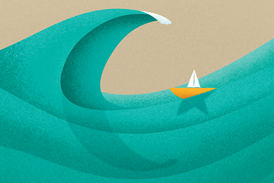
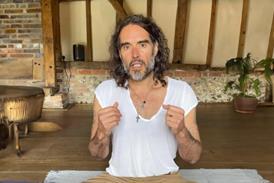
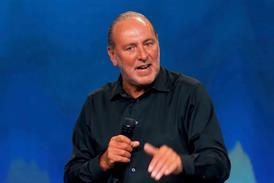









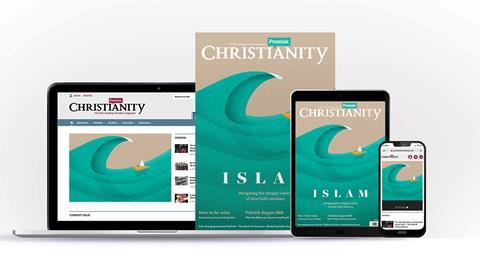



















No comments yet